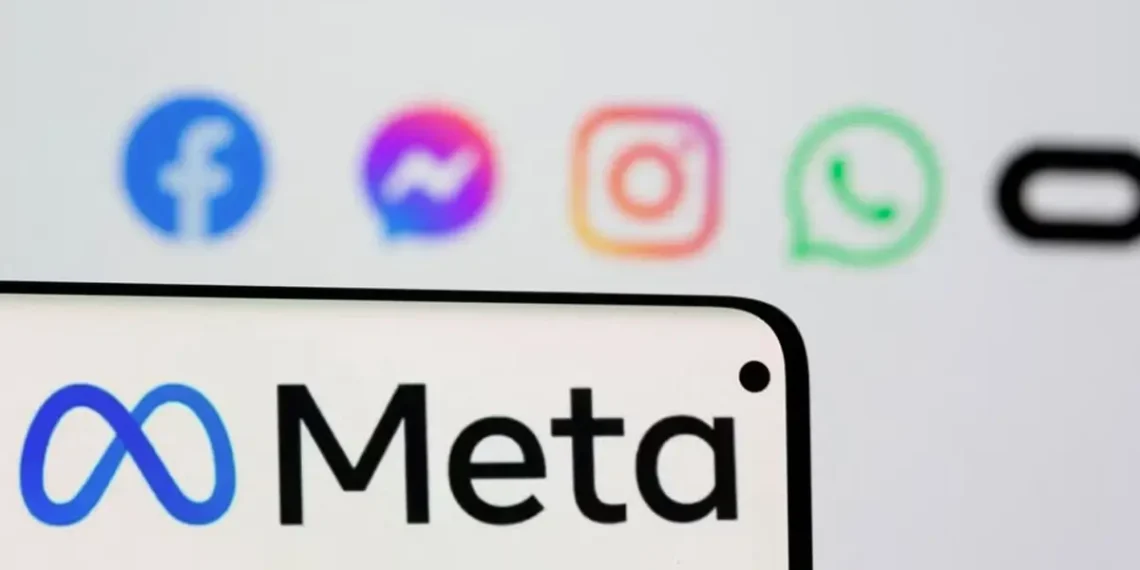Business
Meta earns $7 billion yearly from scam ads on Facebook, Instagram – Report

Meta Platforms Inc., the parent company of Facebook, Instagram, and WhatsApp, displayed an estimated 15 billion “high-risk” scam advertisements daily, which generates about $7 billion in annualized revenue for the social media giant.
This is according to internal documents seen and analyzed by Reuters.
Many of the ads, Reuters said, promoted fraudulent e-commerce schemes, illegal gambling sites, and banned medical products.
The internal documents show that while Meta’s systems frequently flag suspicious advertisers, the company only bans them if its automated tools are 95% certain that fraud is taking place.
When certainty falls below that threshold, Meta does not block the ads but instead charges higher advertising rates as a penalty, effectively profiting from advertisers suspected of running scams
In practice, this means users who interact with scam ads are often exposed to even more of them, as Meta’s ad-personalization algorithms automatically recommend similar content based on user engagement patterns.
Scam ads accounted for up to 10% of Meta’s 2024 revenue
Across multiple internal divisions, including finance, safety, and lobbying, Meta’s staff estimated that scam and prohibited ads made up about 10.1% of its total 2024 revenue, roughly $16 billion.
- The documents describe this as “violating revenue,” referring to income derived from advertising that breaches company standards or laws.
- The reports also reveal that Meta has set limits on how much revenue loss it is willing to tolerate when acting against scam advertisers.
- In early 2025, a vetting team reportedly could not take enforcement actions that might cost the company more than 0.15% of its total revenue, or about $135 million from the $90 billion generated in the first half of 2025.
Meta defends its record
Responding to the revelations, Meta spokesperson Andy Stone said the documents “present a selective view” that misrepresents the company’s efforts to fight fraud. He explained that the 10.1% estimate was “rough and overly-inclusive,” and included “many legitimate ads.”
“We aggressively fight fraud and scams because people on our platforms don’t want this content, legitimate advertisers don’t want it, and we don’t want it either,” Stone said.
He added that Meta had reduced global user reports of scam ads by 58% over the past 18 months and removed 134 million scam ad posts in 2025 alone.
- According to Reuters, despite these efforts, Meta’s own internal research found that its platforms remain heavily involved in global fraud activity.
- A May 2025 safety division report concluded that Meta platforms were involved in one-third of all successful scams in the United States, while another review stated that “it is easier to advertise scams on Meta than on Google.”
- The U.S. Securities and Exchange Commission (SEC) is reportedly investigating Meta’s role in facilitating financial scam ads, while a UK regulator found that Meta’s platforms accounted for 54% of all payments-related scam losses in 2023, more than all other social platforms combined.
What you should know
In a recent update released recently, Meta said it took enforcement action against around 500,000 accounts for spammy behavior or fake engagement during the first half of 2025.
The company described the move as part of a broader effort to elevate original creators and make Facebook feeds more relevant and rewarding.
In addition to the 500,000 spammy accounts, the tech giant disclosed that it removed about 10 million fake profiles found to be impersonating large content producers.
The actions ranged from reducing visibility and monetization eligibility to completely removing offending accounts.
The update, however, did not include enforcement on scam ads on the platform. (Nairametrics)
-

 Opinion2 hours ago
Opinion2 hours agoLeft behind but not forgotten
-

 Politics2 hours ago
Politics2 hours agoWe Don’t Need Gov’s Support To Deliver Rivers For Tinubu – Wike
-

 News2 hours ago
News2 hours agoTinubu’s ambassador-designates in limbo
-

 Business2 hours ago
Business2 hours agoCBN raises alarm over Nigeria fintech’s foreign reliance
-

 Politics2 hours ago
Politics2 hours agoWe’ve no plans to impeach dep gov — Kano Assembly
-

 Politics2 hours ago
Politics2 hours agoElectoral Act: Amendment yet to be concluded – Akpabio tells critics
-

 News2 hours ago
News2 hours agoKaduna Residents Protest Displacement Of 18 Villages By Bandits, Closure Of 13 Basic Schools
-

 News2 hours ago
News2 hours agoTinubu Set For First UK State Visit In 37 Years


















